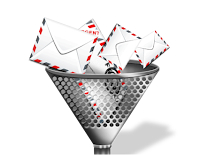It's great that you have a website, but you want it to be as effective as possible so that you can gain more followers, get better gigs, and sell more product. Here's an excerpt from
Social Media Promotion For Musicians that outlines the 7 website killers to avoid to make sure that visitors find your site and want to come back.
"Here are a number of practices that are guaranteed to turn off your visitors. You know what they are yourself because you probably encounter them on other sites every day, but that doesn't mean you should emulate a bad practice. Not only do many of the following aggravate site visitors, but they're can mean site death when it comes to search engine optimization. If you want fans to find you, make sure these are avoided.
1. A "splash" page. A splash page is an opening page with a movie or flash animation and no information. The whole "Enter Here" thing is so Web 1.0. There's no info for a search engine to grab and your visitors hate them. Avoid at all costs.
2. Flash animation. It looks cool, but sometimes people just want some info and not cartoons. Search engines can't read any of the info in a Flash movie so they're a waste of time and money. iPhones and iPads can’t display Flash, and most people hate it these days anyway.
3. Frames. Again, so Web 1.0. Sites with frames went out a long time ago. Get with the times and dump these babies.
4. Pop-ups. It doesn't matter where they come from or if they're selling something or not, everyone hates them.
5. Pull-down boxes for navigation. Designers love them, visitors hate them, search engines can't read them. If your site isn’t that complex, stay away if you can.
6. Dead links. This is just poor website quality control. It happens to everyone at some point, but remember that both search engines and visitors hate them.
7. All graphics and not much text. Search engines love text. Visitors love text. Pictures are nice, but use them in moderation."
These rules aren't that difficult to implement, especially if you're updating your site. Chances are that if your site is still using the first 3 items, you really need an update anyway.
----------------------------------
Follow me on Forbes for some insights on the new music business.
You should follow me on Twitter and Facebook for daily news and updates on production and the music business.












